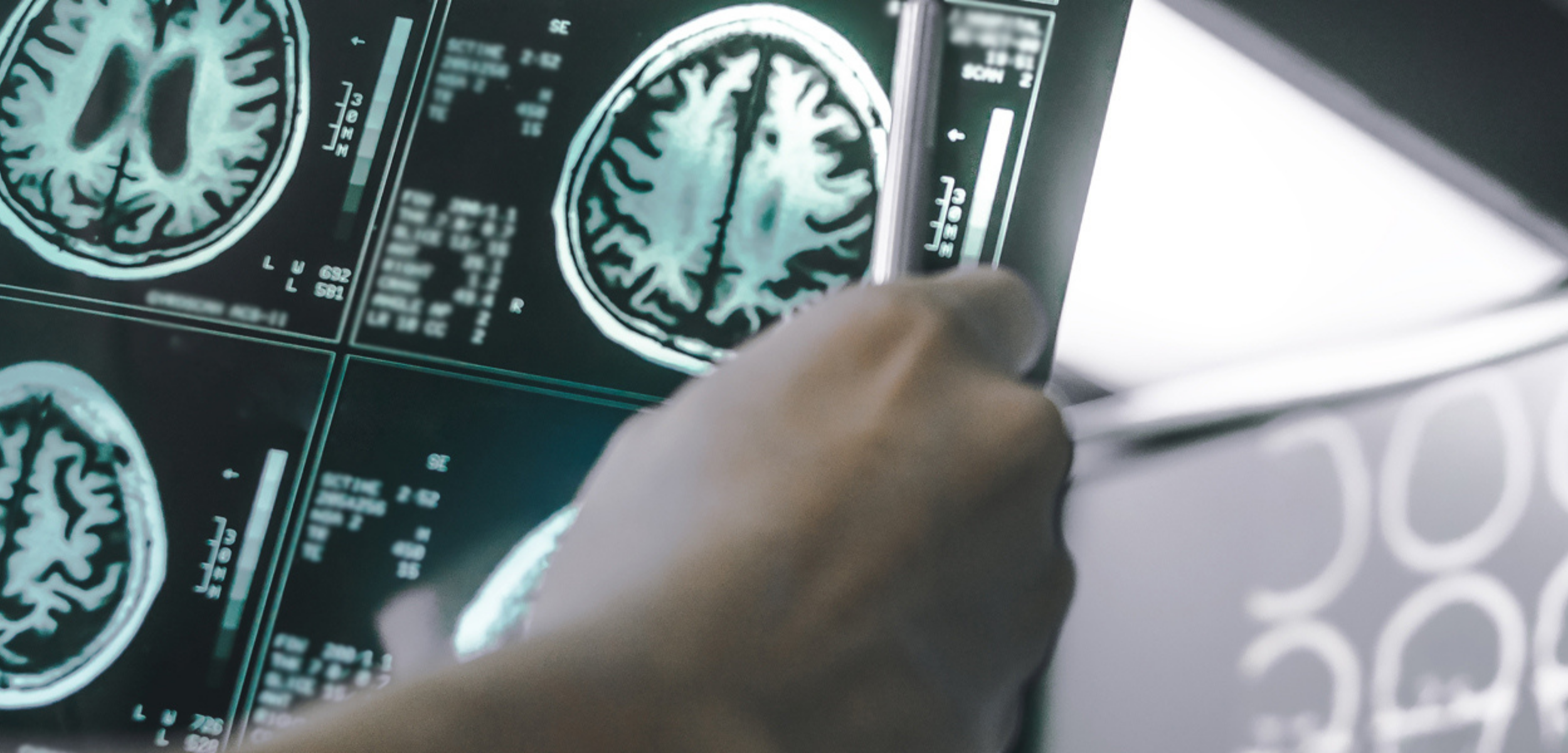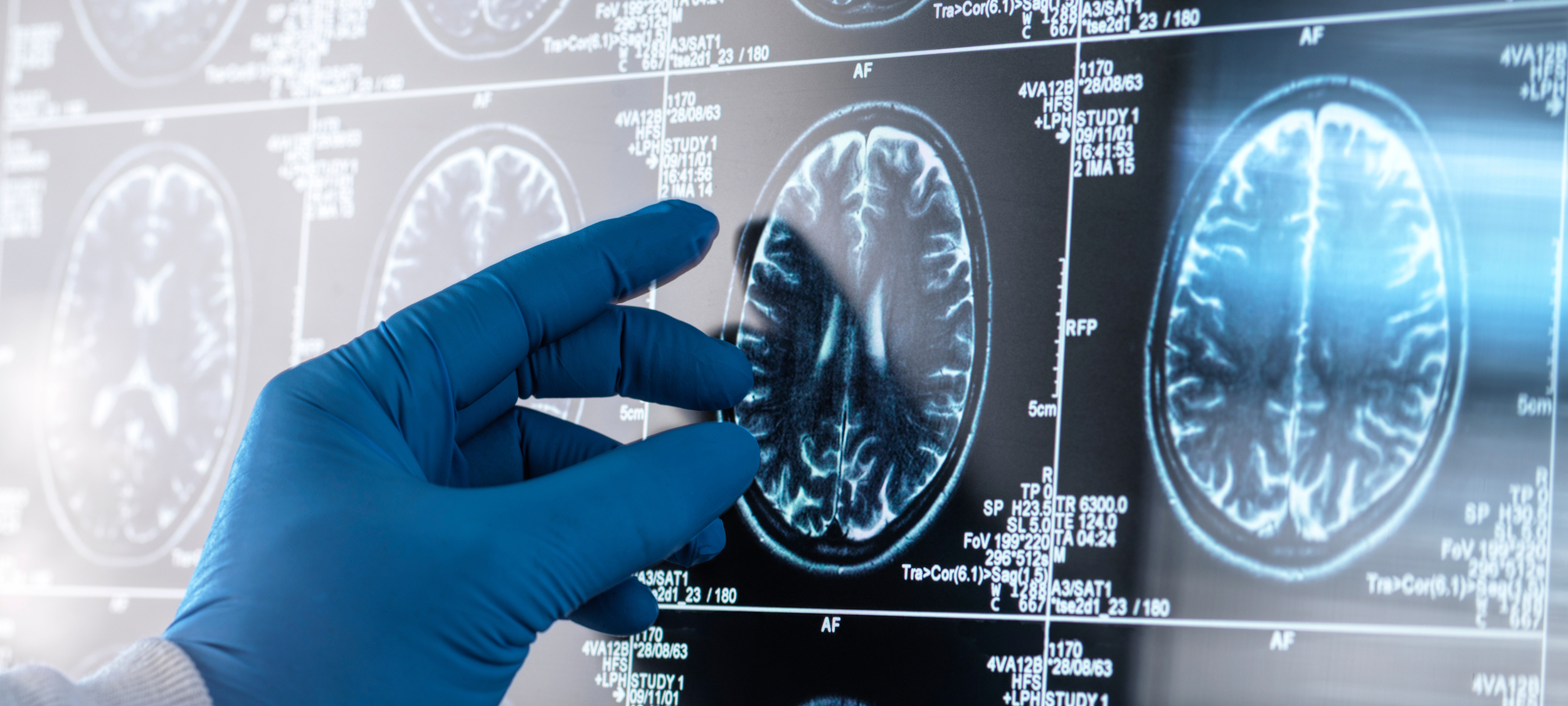Dr. Luciano D’Adamio’s NanoNewron Awarded $2.5 Million NIH STTR Grant to Advance Alzheimer’s Disease Treatment

Rutgers Brain Health Institute core faculty member leads innovative Alzheimer’s research in collaboration with NanoNewron
NanoNewron, a pioneering biotechnology company founded by Dr. Luciano D’Adamio, a core faculty member of the Rutgers Brain Health Institute (BHI) and holder of the Herbert C. and Jacqueline Krieger Klein Endowed Chair, has been awarded a $2.5 million Small Business Technology Transfer (STTR) Phase 2 Grant from the National Institutes of Health (NIH). This funding will advance NanoNewron’s NN-840 program, developing novel TNF-alpha inhibitor nanobodies designed to cross the blood-brain barrier (BBB) to treat Alzheimer’s disease and other neurodegenerative disorders.
The grant, awarded through the National Institute on Aging, will support Investigational New Drug (IND)-enabling studies for the NN-840 program, with an IND submission planned for 2026. Building on a successful STTR Phase I grant, this award strengthens the collaboration between NanoNewron and the Rutgers University, showcasing Rutgers’ leadership in translational neuroscience research.
“Securing this competitive NIH award confirms both the scientific and clinical promise of NanoNewron’s approach to Alzheimer’s disease,” said Dr. Marco Taglietti, Chief Executive Officer of NanoNewron. “There is still a dire need for more effective treatments for Alzheimer’s Disease. Despite decades of research, the current treatments only offer temporary improvements in symptoms and just a modest slowdown of cognitive decline. The product and the underlying technology developed at NanoNewron promise to transform the treatment of Alzheimer’s in the same way that TNF-alpha inhibitors transformed the treatment of systemic inflammatory diseases such as Crohn’s Disease or Rheumatoid Arthritis.”
Dr. Luciano D’Adamio’s Vision for Alzheimer’s Treatment
Dr. Luciano D’Adamio, Chief Scientific Officer of NanoNewron and a Professor at Rutgers University, has spearheaded the development of the NN-840 program. “At NanoNewron, we believe that TNF-α plays a key pathogenic role in Alzheimer’s,” said Dr. D’Adamio. “We developed potent TNF-alpha inhibitor antibodies to be used to treat Alzheimer’s and, since these antibodies cannot cross the blood-brain barrier by themselves, we combined them with our NewroBus™ technology, a nanoantibody able to cross the blood-brain barrier(BBB) by leveraging the transcytosis activity of Transferrin Receptor one (TfR1). These combined products of the NN-840 program have shown very promising results in animal models when administered subcutaneously, with high inhibition of TNF-alpha activity inside the brain and excellent tolerability.”
The NN-840 program utilizes NanoNewron’s proprietary NewroBus™ technology, which targets the transferrin receptor 1 (TfR1) to enable efficient transcytosis across the BBB. This breakthrough enhances the delivery of biologic therapeutics to the brain, addressing a long-standing challenge in Alzheimer’s research. Preclinical studies in humanized models have demonstrated the program’s potential to target neuroinflammatory pathways, offering a transformative approach to treating Alzheimer’s disease.

Commenting on the significance of this approach, Dr. Michal Schnaider Beeri, PhD, Director of the Herbert and Jacqueline Krieger Klein Alzheimer’s Research Center at Rutgers Brain Health Institute and Professor of Neurology at Robert Wood Johnson Hospital, stated, “Inflammation is increasingly recognized as both a trigger and an accelerator of Alzheimer’s disease, but past clinical trials testing anti-inflammatory drugs have failed, very likely because those agents were unable to cross the blood-brain barrier and reach their target. Dr. D’Adamio’s approach directly addresses this long-standing challenge by using the NewroBus™ nanobody technology as a ‘Trojan horse’ to enable TNF-alpha inhibitors to penetrate the brain effectively, where TNF-alpha plays a central pathogenic role in neurodegeneration. If successfully translated from animal models to human trials, this represents not just a single therapy but a platform technology that could transform how we deliver biologics to the brain to slow or prevent Alzheimer’s and potentially other neurodegenerative conditions.”

Rutgers University and NanoNewron: A Collaborative Milestone
The collaboration between NanoNewron and the Rutgers University underscores Rutgers’ commitment to advancing innovative treatments for neurodegenerative diseases. The foundational work for the NN-840 program was conducted at Rutgers, supported by BHI’s cutting-edge facilities and expertise.
“The initial work of NanoNewron has been conducted at Rutgers University, with the funding also from a significant STTR Phase I NIH grant,” said Deborah Perez Fernandez, PhD, MBA, executive director of the Office for Research (OfR) Technology Transfer unit of Rutgers University. “Dr. D’Adamio’s innovations have the potential to make a positive impact for so many families around the world, and it’s another example of the contribution and commitment of Rutgers University to advance the treatment of serious diseases.
This milestone highlights Dr. D’Adamio’s leadership and the Rutgers Brain Health Institute’s role as a hub for groundbreaking neuroscience research. The NN-840 program is advancing through preclinical evaluation, with plans to initiate clinical trials following the anticipated IND submission, marking a significant step forward in the fight against Alzheimer’s disease.
To know more about the project, attend Dr. D’Adamio’s presentation on NanoNewron at the New Jersey Academic Drug Discovery Consortium Annual Meeting on October 6, 2025.

Support Transformative Alzheimer’s Research at Rutgers BHI
For more information on the collaborative efforts and research initiatives, visit the Rutgers Brain Health Institute and the Herbert and Jacqueline Krieger Klein Alzheimer’s Research Center.
Groundbreaking research, such as repurposing existing cancer medications for Alzheimer’s, can profoundly reshape the future of brain health. By supporting Rutgers Brain Health Institute, you’re contributing directly to innovative therapies, precision medicine breakthroughs, and meaningful advances that offer hope to millions affected by Alzheimer’s disease.
Together, we can accelerate discoveries that improve lives. Join us in our mission to drive impactful, cutting-edge research forward.
